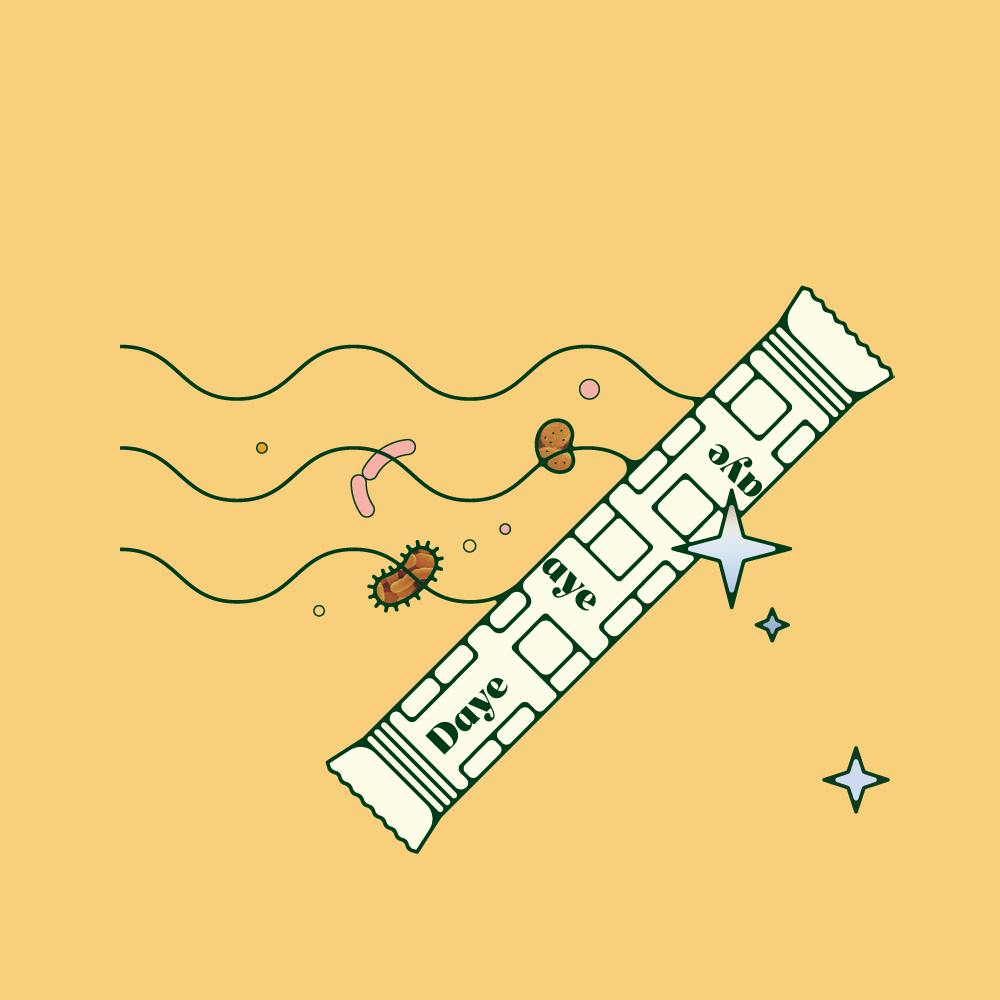If you’re a tampon user, chances are you’ve worried about toxic shock syndrome, or TSS, at one point or another. TSS is like the period bogey man, but unlike most urban legends, the risk of contracting an infection from a tampon has some truth to it. Although TSS is incredibly rare, it’s something to be taken seriously.
When developing Daye tampons, we knew the risk of TSS and other vaginal infections like thrush and BV was one of the many issues with mainstream tampons.
Despite being on the market for almost a century, tampons have barely seen any innovation since their inception (which is a main reason why Daye exists).
A key area for innovation is the cleanliness of tampons – believe it or not, period care isn’t regulated as a medical device, which means there is no sanitisation step required in tampon manufacturing.
Daye tampons are sanitised with gamma rays to reduce your risk of developing a vaginal infection like BV, thrush, or a more fatal one like TSS. That sounds like it should be the norm, but keep reading to learn more about TSS and why we sanitise tampons at Daye.
Do tampons cause TSS?
The biggest misconception about toxic shock syndrome is that it’s caused by tampons. In reality, TSS is simply linked to tampons.
Anything left in the vaginal canal for too long can put you at risk of TSS, whether it’s a tampon or a menstrual cup – that’s why they both come with a wearing time limit.
Toxic shock syndrome is caused by the bacteria Staphylococcus aureus and Streptococcus pyogenes, commonly referred to as Staph and Strep respectively.
Staph and Strep often inhabit different parts of your body, like your throat, nostrils, vagina and rectum, without causing any issues. They’re only a threat if they multiply very quickly and produce a toxin aptly called Toxic Shock Syndrome Toxin (TSST). If TSST enters your bloodstream, it can lead to toxic shock syndrome.
So why is TSS linked to tampons?
It’s unclear, but the theory is that when left inside your vagina for too long, tampons create the perfect breeding ground for Staph bacteria to colonise. Your vaginal canal is filled with blood vessels, so TSST has easy access to your bloodstream from your vagina.
The dry surface of tampons can also cause friction during insertion and removal, which may cause small abrasions to the vaginal mucosa and allow TSST to enter your bloodstream more rapidly.
There isn't any legislation around what goes into tampons, and there is precedent for mainstream tampons being recalled due to contamination.
So at Daye we made the decision to hold our tampons to a higher standard, producing them in pharmaceutical-grade cleanrooms and sanitising them with our proprietary gamma ray technology.
What are gamma rays?
If the science-fiction-y name is throwing you off, don’t worry. Gamma ray sterilisation is a standard and safe procedure used to sanitise medical devices (like surgical tools) to eliminate the presence of bacteria, yeasts and other pathogens.
As gamma rays pass through the tampons, they kill any bacteria present in and on the tampon by breaking down the bacterial DNA. Hardcore, we know.
While the rays penetrate the tampon, they don’t get absorbed or linger – because no one wants radioactive tampons just as much as they don’t want contaminated ones. We sterilise Daye tampons in their final packaging to ensure the applicator and wrapper are also sanitised.
Another benefit of gamma ray irradiation is that it doesn’t compromise the efficacy or potency of CBD.
What else are gamma rays used for?
Gamma sterilisation has a wide variety of applications. It’s used to sterilise human tissue grafts in reconstructive surgery, needles, syringes, surgical blades, and even things like food packaging and wine corks!
It’s often even used to sanitise food itself, so why not tampons too?
Should you be worried about TSS?
Yes and no. We implement a ‘safety first’ approach at Daye and self-regulate as a medical device, so we take the risk of TSS very seriously.
That being said, the likelihood of you developing TSS from a tampon is incredibly low. Most people produce an antibody that protects against toxic shock, and your immune system and vaginal microbiome do a pretty stellar job at fending off infections and harmful bacteria. Just remember to change your tampon every 4-8 hours!
This isn't to say your tampon will definitely give you thrush or BV, but out of principle we believe something that goes inside your vagina for hours on end every month shouldn't carry that risk.
A healthy vaginal microbiome has been linked to a lower likelihood of developing not only vaginal infections, but also STIs, certain gynae cancers, and even a lower risk of pregnancy complications like miscarriage and preterm birth. Looking after your microbiome is crucial for overall health, and an easy way to do so is by being mindful of what intimate products you use (check out our lowdown on the vaginal microbiome to learn more).
Tampons are a basic necessity for many people, and they shouldn’t put you at risk of bacterial infections – even if that risk is miniscule.
Our mission at Daye is to raise the standards in female health, and we think upgrading the tampon is a worthy place to start.




.png?ixlib=gatsbyFP&auto=compress%2Cformat&fit=max&w=3805&h=3784)
